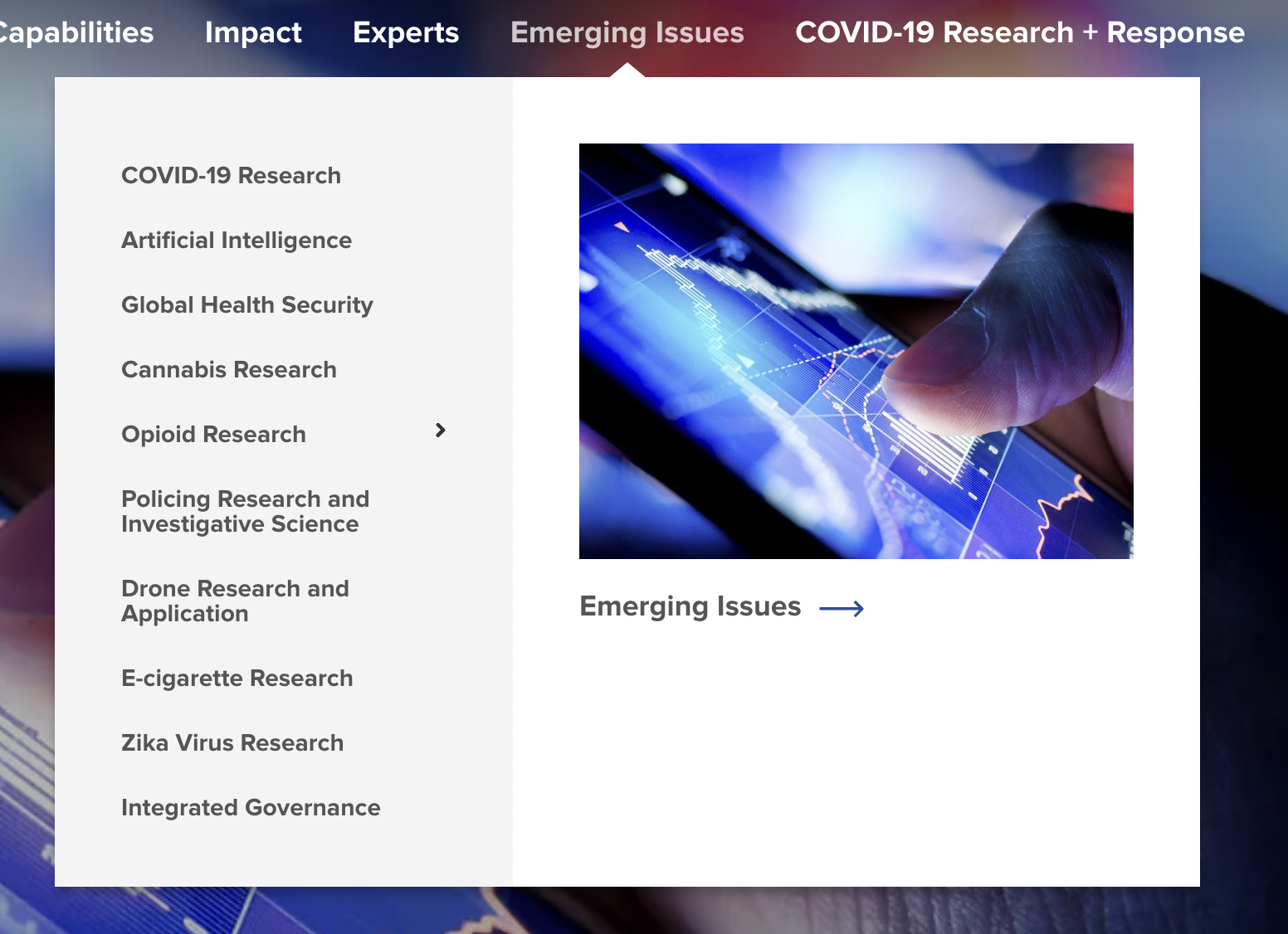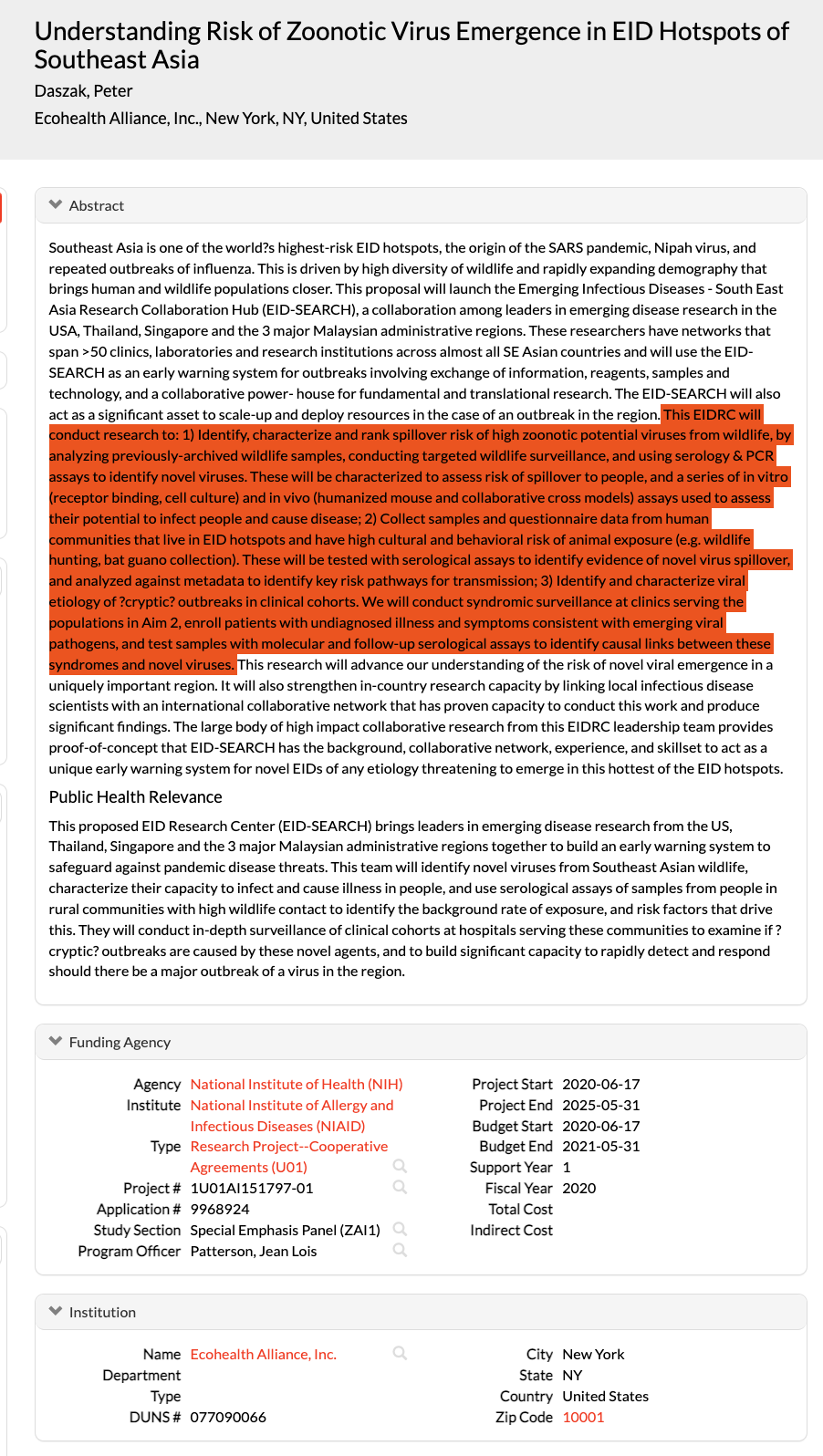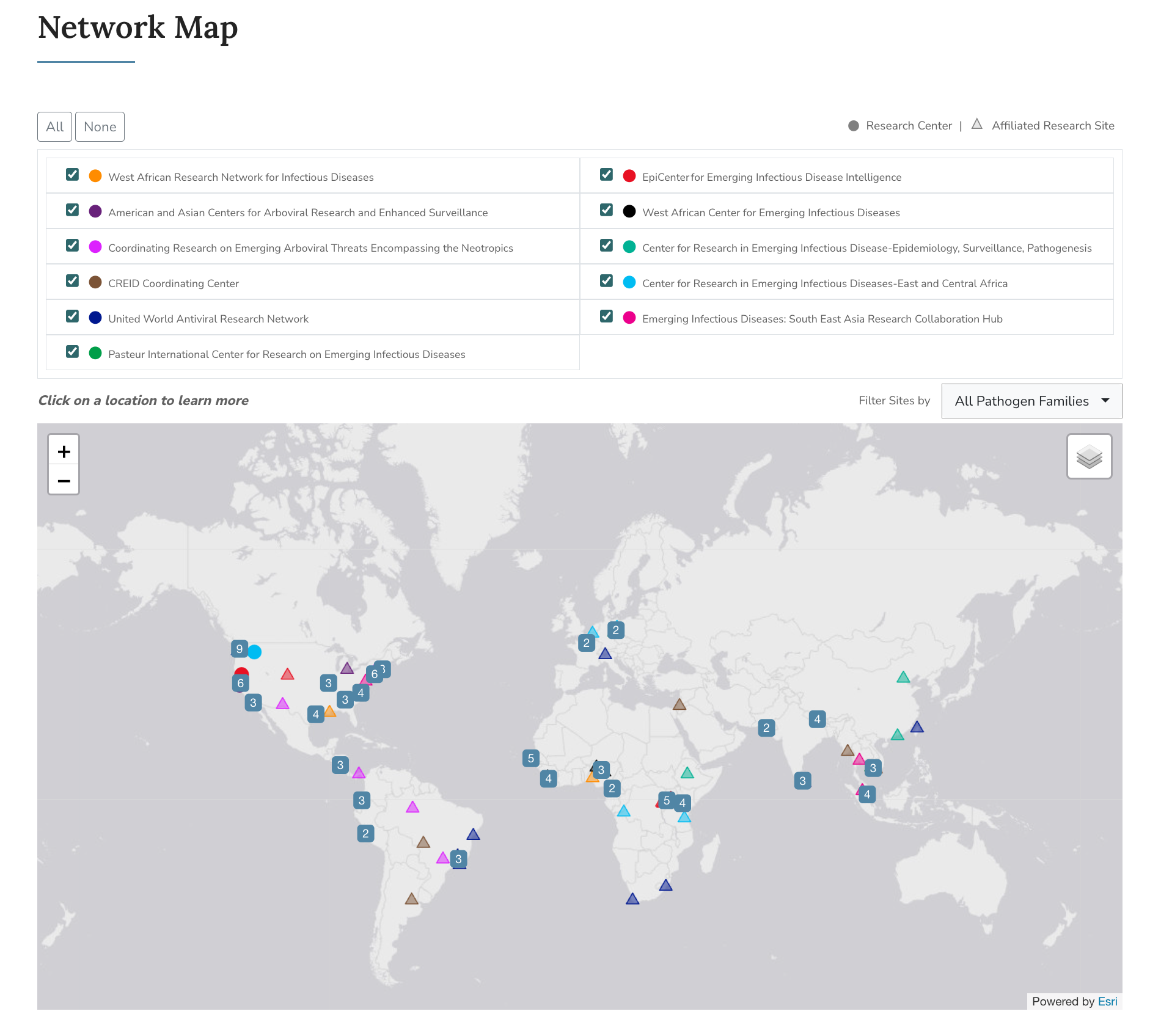It is a little-known fact that the NIH and the NIAID announced the establishment of the Centers for Research in Emerging Infectious Diseases (CREID) in August 2020, smack dab in the middle of the COVID-19 pandemic. The network promised to set up a worldwide surveillance architecture to identify the next pandemic pathogen before it moves from animal to human.
Anthony Fauci justified the addition of the new "global network" to the NIH/NIAID portfolio as yet another way to "enable early warnings of emerging diseases," which is, he added, "critical to rapid responses" and will "increase our preparedness for future outbreaks." Sounds about right for Fauci—however, his words ring hollow, given his management of the pandemic was nothing short of disastrous. Knowing what we know now, this partnership will probably be another way to develop more "safe and effective" vaccines or share our precious intellectual property with the CCP.
According to the press release, the first-year value of the 11 awarded grants totaled approximately $17 million. The NIH announcement states, "NIAID intends to provide approximately $82 million over five years to support the network." Round three of CREID applications for grants were launched in September 2022 for FY2023.
A brief read of the CREID website shows that CREID is a partnership between RTI International (RTI) and Duke University's Human Vaccine Institute. As stated in the CREID grant awarded to Donald Brambilla, Ph.D. Brambilla, the Principal Investigator for the Coordinating Center and Senior Research Statistician at RTI International, is "a premier university known for its cutting-edge medical research and home to a state-of-the-art, NIAID-funded Regional Biocontainment Laboratory."
RTI and Duke form the CREID Coordinating Center, which now serves as an operational hub to support the "administration and management of data and scientific programs" in the U.S. and "28 other countries." The idea is that CREID would make it easier to "surge response activities during outbreaks."
RTI touts several "practice areas" as part of its research mission. It provides "science-based solutions" to things like health, water, climate change, and even the military, to name a few. It also boasts a unit dedicated to "transformative research on equity." RTI provides solutions for emerging issues like COVID-19, AI, drones, and "Integrated Governance."
 RTI/Emerging Issues/https://www.rti.org/emerging-issues
RTI/Emerging Issues/https://www.rti.org/emerging-issues
Notably, Peter Daszak with the EcoHealth Alliance, Inc. was awarded one of the NIH-CREID grants. Daszak's grant launches the "Emerging Infectious Diseases - South East Asia Research Collaboration Hub (EID-SEARCH)" to study "novel [zoonotic] virus spillover" and their links to "syndromes" in the region. Daszak is notorious for his gain-of-function (GoF) research and its almost untraceable funding trail, which allowed Anthony Fauci to tell "noble lies" to Congress when asked whether the NIH was funding GoF research. EcoHealth also has questionable ties with the intelligence community partnering with China and other countries whose interests may not align with the U.S., especially in the area of national security.
 Daszak/EcoHealth/CREID Grant/https://grantome.com/grant/NIH/U01-AI151797-01
Daszak/EcoHealth/CREID Grant/https://grantome.com/grant/NIH/U01-AI151797-01
CREID/NIH Research projects include surveillance studies of "febrile illnesses in humans, animal sources of viral or other disease-causing pathogens," and the study of the "genetic or other changes" that lead to pathogens that are "capable of infecting humans." The research projects "will allow for the study of disease spillover in multiple phases of the process: where pathogens first emerge from an animal host; at the borders between wild and more populated areas, where human-to-human transmission occurs; and, finally, in urban areas, where epidemic spread can occur."
The centers are regional to allow a focus on emergent pathogens, viruses, and diseases that are specific to the region. Notably, "investigators will be poised" in every region to study any newly emerging pathogen, dubbed "pathogen X," or previously unknown pathogens—echoing the "discovery" of the "novel coronavirus, COVID-19."
 https://www.nih.gov/news-events/news-releases/nih-establishes-centers-research-emerging-infectious-diseases
https://www.nih.gov/news-events/news-releases/nih-establishes-centers-research-emerging-infectious-diseases
The CREID's network map shows multiple locations and centers in the U.S., Central and South America, Africa, Pakistan, China, Nepal, Sri Lanka, Malaysia, and more—with the highest concentration of research and surveillance conducted in the U.S. and Africa.
 CREID/Network Map/https://creid-network.org/network-map
CREID/Network Map/https://creid-network.org/network-map
Work in China reflects a partnership between the University of Hong Kong and the China CDC AND the Center for Research in Emerging Infectious Disease—Epidemiology, Surveillance, Pathogenesis (CREID-ESP), at Washington University in St. Louis under the guidance of David Wang, Ph.D. Wang. Wang's NIH-CREID grant has authorized the study of, among other things, the use of "Real-Time PCR Assay for the monitoring of SARS-CoV-2 growth in cell culture."
Wang's grant also supported the development of mRNA and Ad26.COV2.S vaccines to "protect against the B.1.621 variant of SARS-CoV-2." Wang's lab focuses on the "identification and characterization of novel pathogens." Wang's specialties include the study of "microbial pathogenesis, functional genomics, genome analysis, virology, and computational biology." Wang's lab is housed in the Department of Genetics and the Center of Genome Studies & Systems Biology at Wash U.
The CREID's research concentrates on emerging infectious diseases and pathogens, including; Coronaviruses, Filoviruses, Flaviviruses, Bunyavirales, and "additional pathogens of interest" like Chikungunya and Nipah virus families, and Disease X (unknown viruses).
NIH Funding in 2023 for OD and NIAID Drops Significantly
A look at NIH funding shows some interesting trends regarding awards granted to the Office of the Director (OD) in 2023 and the NIAID, where Anthony Fauci was Director before his departure in December 2022. Twenty-seven separate institutes and centers carry out NIH biomedical research for the NIH. Awards dropped dramatically in FY2023 for the OD and the NIAID. The OD is the central office at NIH. It is "responsible for setting policy for NIH and for planning, managing, and coordinating the programs and activities of all the NIH components."
In 2023, there were 172 awards totaling $199,715,000 for the OD, compared to 773 totaling $1,248,612,877 in 2022. NIAID was awarded 7,217 awards in 2022, totaling $5,947,355,748 in 2022. However, in 2023, there were only 2,561 awards totaling $1,692,910,445, making it a significant drop in funding. NIAID was the highest funding award winner of all the centers in 2022 and 2023.
As a comparison, during the pandemic, the OD received 709 grants totaling $1,141,292,409 in 2020. In the same year, NIAID received 7,183 grants totaling $5,744,058,433. Just prior to the pandemic, in 2019, the OD received 668 awards totaling $977,573,966. NIAID received 6506 awards totaling $4,177,608,952 in 2019.


